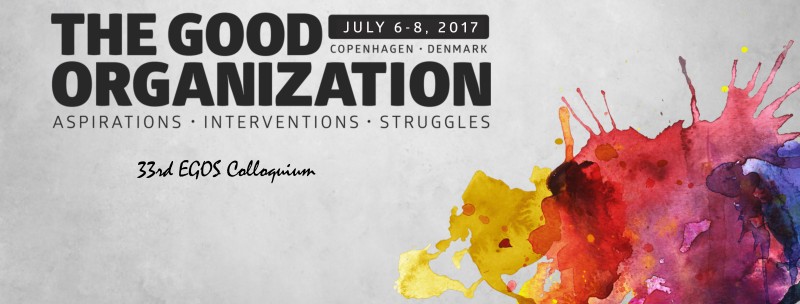Sub-theme 60: Sustainable Careers: A New Paradigm for the Contemporary World of Work?
Call for Papers
Careers form a complex mosaic of objective experiences and subjective evaluations. They unfold over time within an increasingly
complex environment. Organizations play an important role in the sustainability of careers through providing different work
experiences, opportunities for development and support for work-life balance. These practices might not only contribute to
the sustainability of individual careers, but also to the continuity of the organization. In this way, the sustainable career
differs from career concepts such as protean (Hall, 2002), boundaryless (Arthur & Rousseau, 1996) and customized careers
(Valcour et al., 2007), which are somewhat uncoupled from organizational career management, whereas the sustainable career
might particularly serve the concerns of both employees and employers. Yet, many questions remain to be answered as regards
the potential mutually beneficial outcomes of sustainable career management.
The rich variety of careers
implies that individuals may encounter both ‘positive spirals’ wherein career episodes over time become enriched, and ‘negative
spirals’ wherein career episodes are characterized by demotivating and/or unrewarding experiences. The complexity of our world
today entails many opportunities for individuals to make choices in line with their inner drives, yet there is also an ample
list of factors that might put careers ‘at risk’. Moreover, what might appear to be a ‘successful’ or ‘satisfying’ career
in the short run does not always remain so in the long run.
This sub-theme addresses the drivers that contribute
to the sustainability of careers at multiple levels. Sustainable careers refer to sequences of work experiences which are
characterized by the development, conservation and renewal of individuals’ career-related resources over time (Van der Heijden
& De Vos, 2015). There are challenges pertaining to the sustainability of careers for individuals in all key stages of
the career life cycle: career starters, mid-career employees with carer responsibilities and older adults (Greenhaus &
Kossek, 2014). Furthermore, as workers have moved away from an expectation of life-time employment towards a need to protect
their employability, it is important to increase our knowledge of elements that contribute to sustainable careers for all
workers, and to further our understanding of the factors at different levels that affect this sustainability (De Vos &
Gielens, 2015).
Against this backdrop, we invite papers which address pertinent questions with respect to
the sustainability of contemporary careers. We are especially interested in three questions:
- How can organizations facilitate the sustainability of individuals’ careers? How can they be “good” with respect to the careers of their employees, and how can such an approach be beneficial for the individual and the organization?
- What factors distinguish sustainable careers from less sustainable ones, recognizing the complexity of the current career context and applying a time perspective?
- What is the role of the individual career actor, which individual factors affect the sustainability of careers at different career stages and in different organizational settings?
Papers can have a theoretical, methodological or
empirical focus or combine them. Examples include, but certainly are not limited to conceptual papers on the notion of sustainable
careers, its dimensions, antecedents and boundary conditions, methodological papers on how the sustainability of careers can
be researched, and empirical papers answering questions related to sustainable careers. We particularly welcome papers addressing
sustainable careers from the organizational perspective, consistent with the colloquium theme of “the good organization”.
Through the paper presentations and discussions, the debate set up in this sub-theme should result in new insights
related to what sustainability of careers entails both from an organizational and individual viewpoint, how the complexity
of the current career context provides both opportunities and obstacles for both parties pertaining to the sustainability
of careers and how individuals can be engaged in their own career development across career stages and organizational settings,
in view of sustainability. The theme of sustainable careers is complex and contains many tensions, the outcomes of the debate
within this sub-theme will provide answers to the challenges above both in terms of avenues for future research and actions
for stakeholders involved.
References
- Arthur, M.B., & D.M. Rousseau (eds.) (1996): The Boundaryless Career: A New Employment Principle for a New Organizational Era. New York: Oxford University Press.
- De Vos, A., & Gielens, T. (2015): “An integrated and multi-level approach for facilitating sustainable careers.” White paper prepared for the European Network on Career and AGE (Age, Generation, Experience) final event, Brussels, Belgium. Antwerp: Antwerp Management School, February 2015.
- Greenhaus, J.H., & Kossek, E.E. (2014): “The Contemporary Career: A Work-Home Perspective.” Annual Review of Organizational Psychology and Organizational Behavior, 1 (1), 361–388.
- Hall, D.T. (2002): Careers In and Out of Organizations. Thousand Oaks: SAGE Publications.
- Valcour, M., L., Bailyn, L., & Quijada, M.A. (2007): “Customized careers. ” In: H.P. Gunz & M.A. Peiperl (eds.): Handbook of Career Studies. Newbury Park, CA: SAGE Publications, 188–210.
- Van der Heijden, B., & De Vos, A. (2015):
“Sustainable careers: Introductory chapter.” In: A. De Vos & B. van der Heijden (eds.): Handbook of Research on Sustainable
Careers. Cheltenham: Edward Elgar, 1–19.


